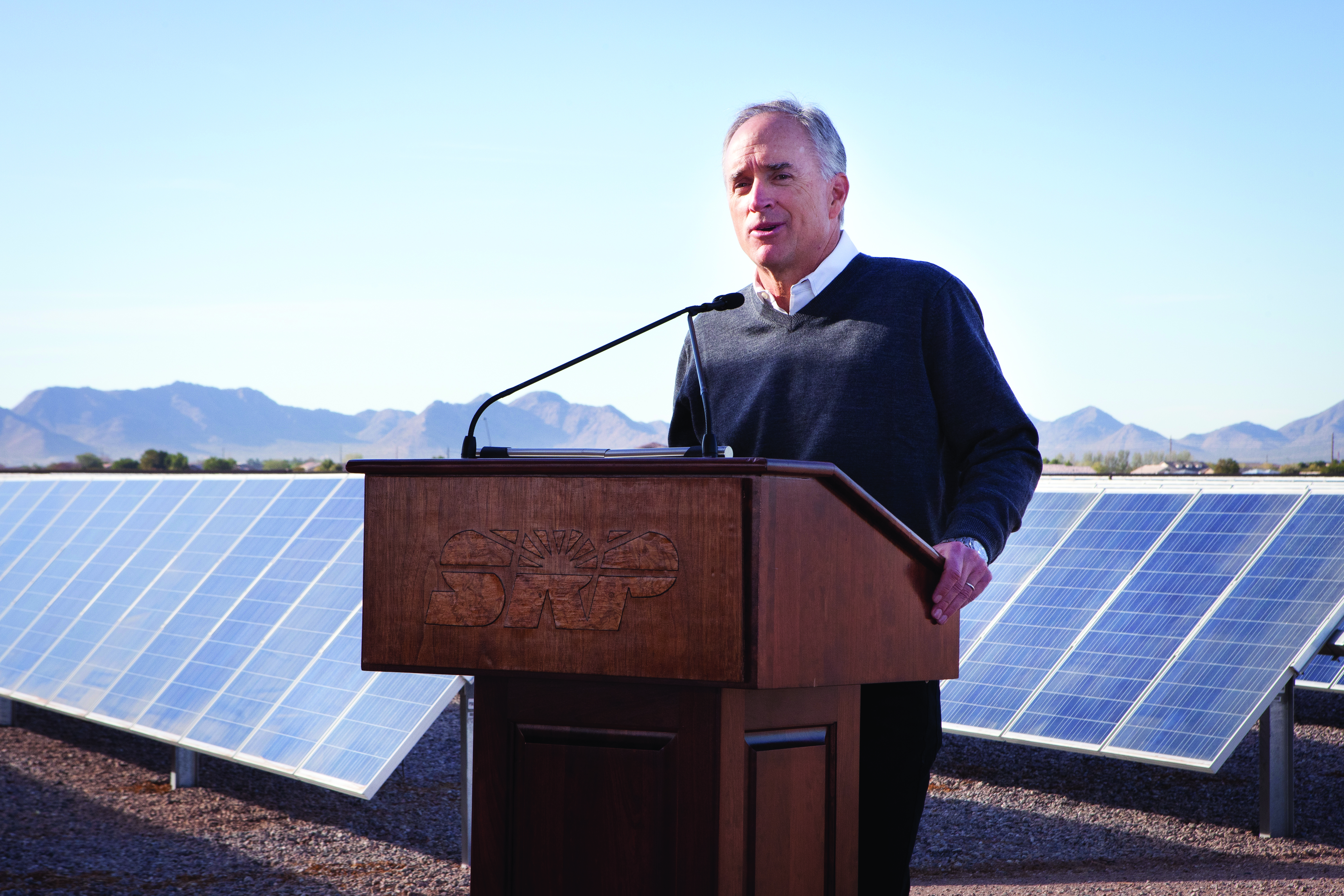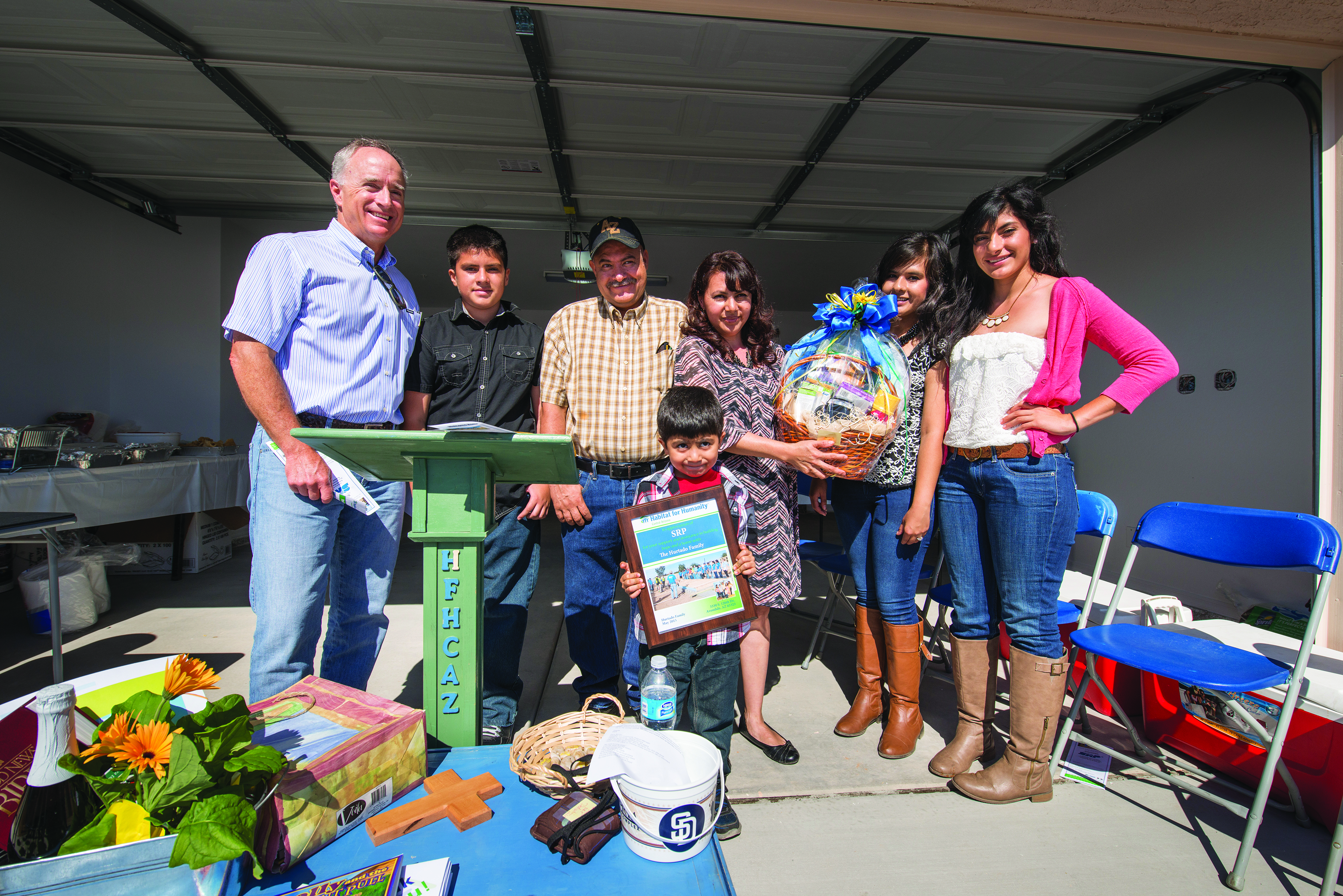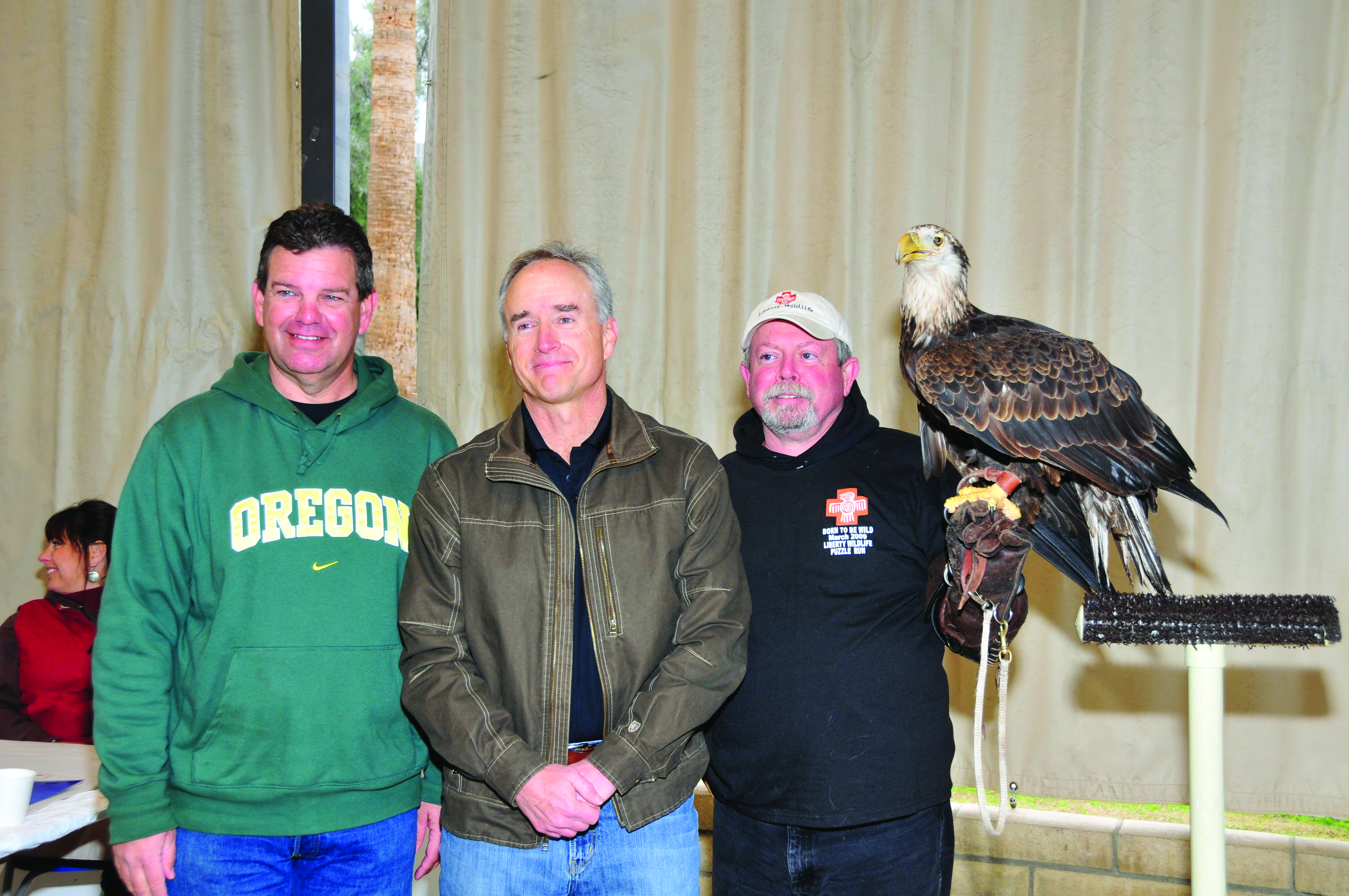
By Amanda Harvey
David Rousseau, president of Salt River Project, is a fourth-generation Arizonan with deep roots in the state, the farming community, and SRP itself. His family arrived in Arizona in the late 1800s to pursue agriculture, a history interwoven with SRP and the oldest water reclamation project in the country.
“The whole premise [of SRP] was to help develop the west,” explained Rousseau. “My family roots here tie entirely to that story and how agriculture was going to be infinitely more plausible with the ability to control irrigation with the investment the federal government made, plus the Roosevelt Dam and the corresponding drainage and canal delivery system.”
After earning a degree from University of Arizona in agricultural business, in 1986 David started Rousseau Farming Company with his brother, Will. The farm grew to more than 10,000 acres and at its peak became one of the largest produce suppliers in Central Arizona.
“The fact that I was a farmer gave me an appreciation for that initial investment and how valuable and rich this area is from an agricultural perspective,” said Rousseau. “As the Valley has urbanized, it’s given me an opportunity to focus the second half of my career away from farming.”

Rousseau’s family ties with SRP span multiple generations. His great-grandfather, LD, served on the original SRP council and helped successfully petition the federal government to build Roosevelt Dam under the Reclamation Act. David’s father, Bill, served on the SRP board in the 1970s, and David himself served on the SRP council and board for 20 years before being elected president in 2010.
“I like to think back on when Teddy Roosevelt commissioned the Roosevelt Dam in 1911. He said, ‘You know, someday this investment will yield the population of a hundred thousand people,’” said Rousseau. The years to come proved Roosevelt’s prediction an understatement, with metro Phoenix’s population of 1.5 million. “Roosevelt Dam and the ability to harness two rivers in the desert [Salt River and Verde River] has given rise to the sixth largest metropolitan city in the country,” Rousseau pointed out.
SRP has evolved over time into an electric utility company that continues to be true to that original charter of delivering low-cost, reliable water to the Valley. Today, however, instead of delivering water for agriculture, 90 percent goes to municipalities.
“SRP has a terrific mission. As a company, we’re a nonprofit, we belong to our customers. That nexus makes it really clear we don’t have to appease Wall Street. We don’t have this pressure to do anything but what’s in our customers’ best interests, and that’s a very simple relationship,” Rousseau said. “Part of my role is to constantly remind myself and those around me of our mission to make sure we’re making prudent decisions in the stewardship of water and power resources.”

One of SRP’s recent accomplishments is the successful burning of previously unusable forest debris biomass to create renewable energy at a coal-fired power plant in St. Johns, Arizona. Additionally, SRP has been working with the National Forest Foundation to increase the vitality of forests and watersheds. A recent collaboration with Apple’s new 50-megawatt photovoltaic solar power plant in Pinal County is another step toward SRP’s 2020 goal of attaining 20 percent of expected retail energy requirements from sustainable resources.
Rousseau combined SRP’s goals with his passion for sports when he served as the chair of the 2015 Arizona Super Bowl Host Committee, helping to make it one of the most sustainable sporting events. “It was much more about economic development than it was about football,” he said. “We were able to highlight everything that’s great about Arizona, but also create a conversation with the business community from around the globe while we had their attention because of a football game to tell an economic story in Arizona.”
Rousseau serves on the boards of the Nature Conservancy, St. Mary’s Food Bank, New Pathways for Youth, Foundation for Blind Children, and the Phoenix Art Museum. He is also involved with the Greater Phoenix Economic Council, American Public Power Association, and the Urban Land Institute.
For more on SRP’s renewable energy goals, visit srpnet.com/environment/renewable.aspx. For tips on how to save water, visit srpnet.com/menu/waterres/savewater.aspx






